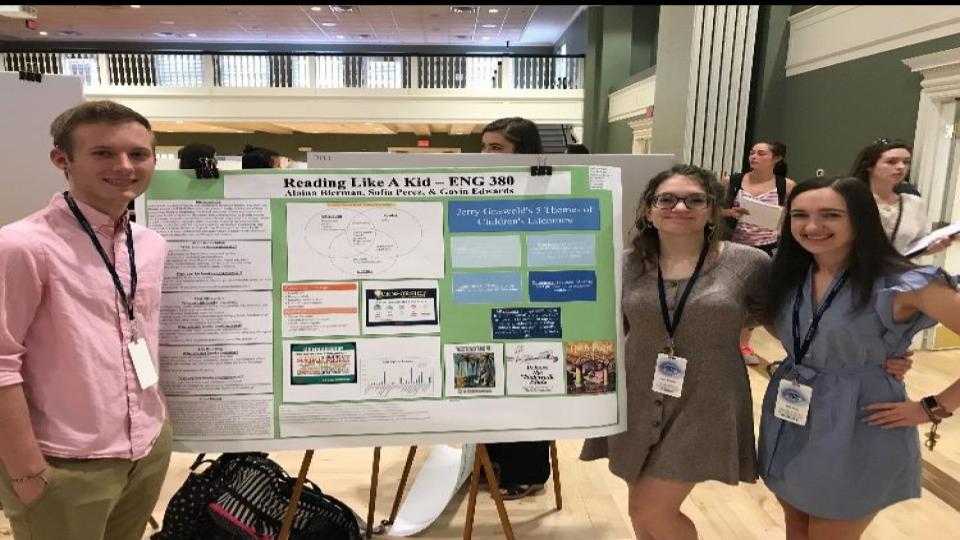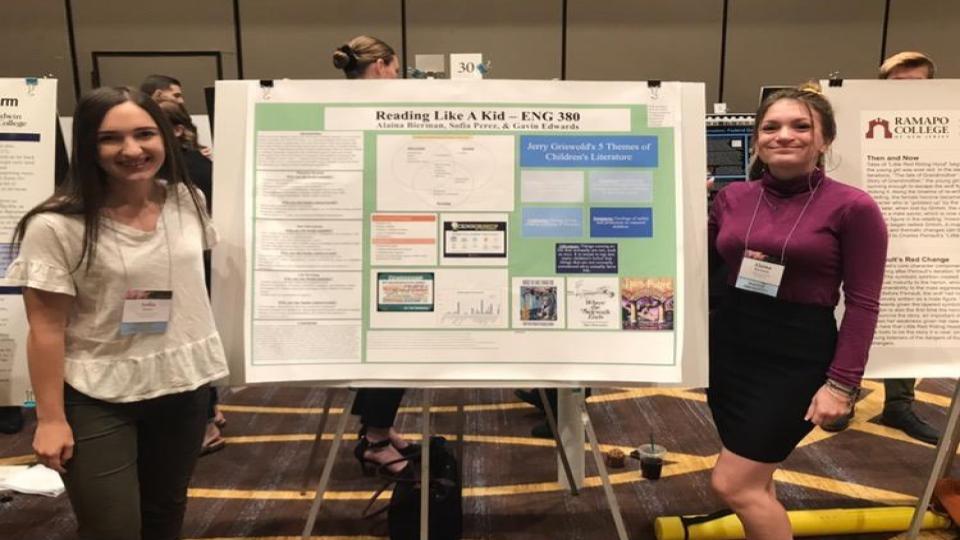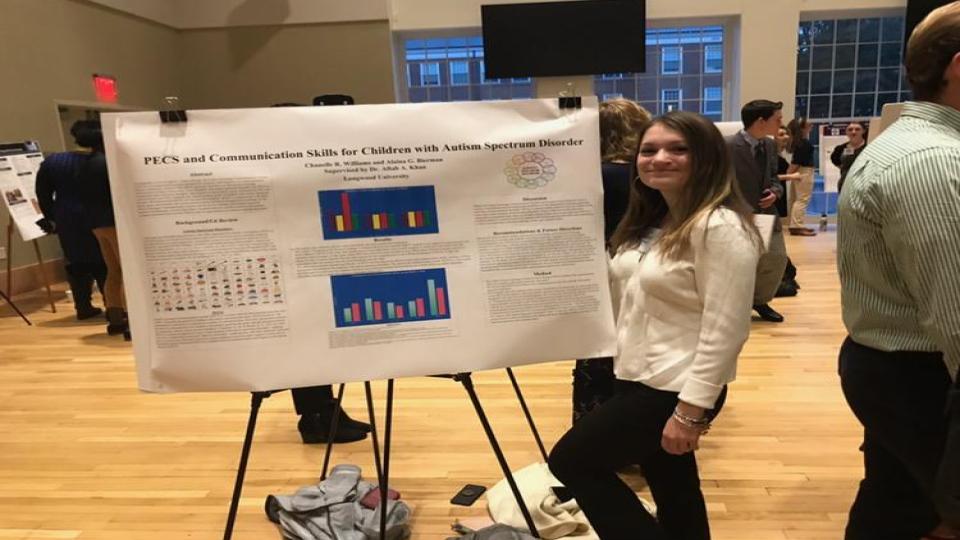Foundation: Children’s Literature ENG 380
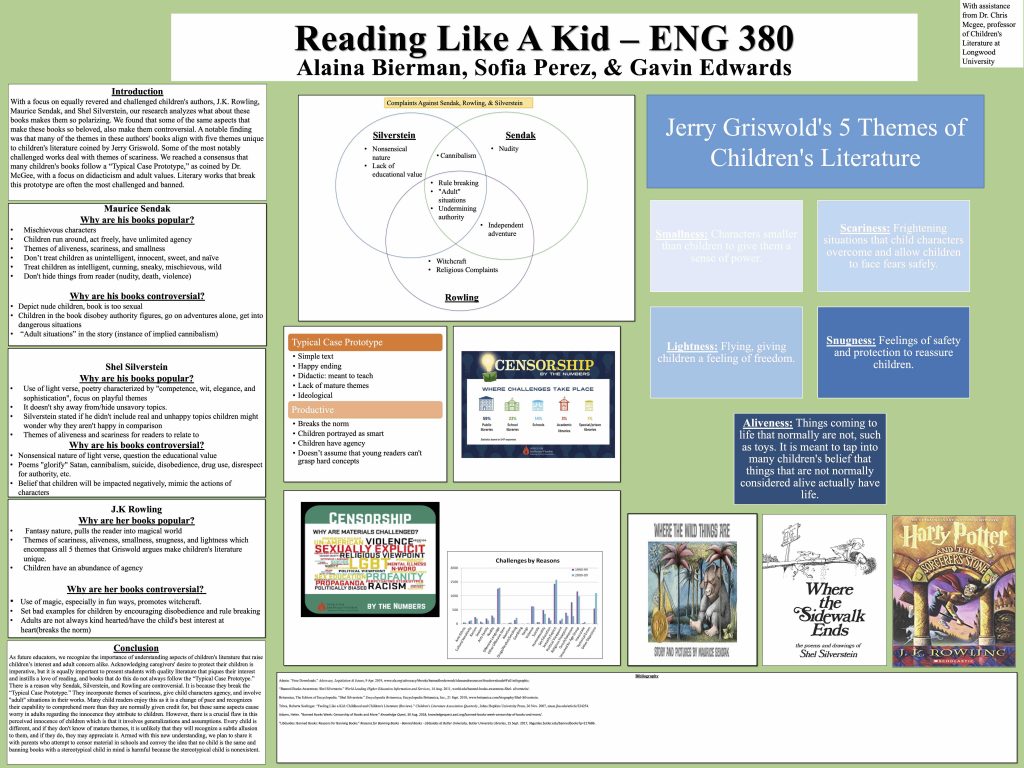
Project Abstract: Our research focuses on three universally challenged yet revered children’s authors: Shel Silverstein, J.K. Rowling, and Maurice Sendak. We familiarized ourselves with controversial topics in children’s literature by reading “Wild Things! Acts of Mischief in Children’s Literature” by Betsy Bird, Julie Danielson, and Peter Sieruta in order to understand what normally sparks censorship attempts. We delved into why and how books by our chosen authors were challenged, and what aspects of their work sparked the most controversy. We observed that the very things in these books that seem to appeal to so many children are the same themes that make a book controversial. After reading books by each of the authors, we compiled a list of common themes throughout them and found that said themes are present in many other challenged and banned children’s books. We applied our findings to terms coined by Jerry Griswold in his book analyzing children’s literature, “Feeling Like A Kid”. These themes are smallness, scariness, snugness, lightness, and aliveness. We discovered that some of the most challenged works of literature geared towards children involve themes of scariness. We reached a consensus, with the assistance of Dr. Christopher McGee from Longwood University, that many children’s books follow a typical case prototype containing didacticism and a focus on adult values for children rather than providing the child with a quality work of literature. Our main goal as future educators is to understand why works of literature that are so beloved are as such, and why those same books are often challenged. We wish to promote the idea that attempting to read like a child when selecting books to provide them with often robs them of quality literature as how children are and how we perceive them to be are two very different things.
Foundation: Survey of Exceptional Children SPED 389
Project Abstract: Developed by Lori Frost and Dr. Andrew Bondy, the Picture Exchange Communication System, or PECS is a communication system designed for students with limited or no communication abilities. Commonly, students with autism spectrum disorders use the picture exchange communication system in their daily lives. Students with autism spectrum disorders use PECS to communicate their emotions, thoughts, and requests to their family, peers, and teachers. We were curious to know how PECS impacts the communication skills of students with autism spectrum disorders. We believed that PECS will increase the students’ ability to communicate with their family, peers, and teachers. We used research journal articles to deepen our knowledge of the Picture Exchange Communication systems and its use for students with autism spectrum disorders. Furthermore, we provided future recommendations and discussion on the picture exchange communication system (PECS) and its applications for students with this disorders.
Foundation: Health and PE for Elementary Education Classroom Teachers KINS 389
 Loading...
Loading...
Project Abstract: Sensory Processing Disorder (SPD) affects how the brain processes sensory information. SPD affects children and adults and is usually seen in developmental conditions, such as autism spectrum disorder (The Understood Team, 2014.). The authors will define SPD, note it’s prevalence, describe its characteristics, and explain the benefits of recess for students with SPD. The authors will conclude with recommendations for the recess setting to benefit students with SPD.
Foundation: Queer Virginia CTZN 410
Project Abstract: This honors research project looks at residential life at Longwood University, and focuses on residents who are members of the LGBTQ+ community. This project looks at the different spaces available for LGBTQ+ residents, and the accommodations made to ensure they are living in a safe, happy environment where they feel comfortable expressing themselves. This project also looks at the way residential communities can educate others on the needs and history of LGBTQ+ residents, and how they can be best supported, as well as ensuring resources are readily available for all residents, including LGBTQ+ residents.
Foundation: Introduction to Residential Learning EDUC 376
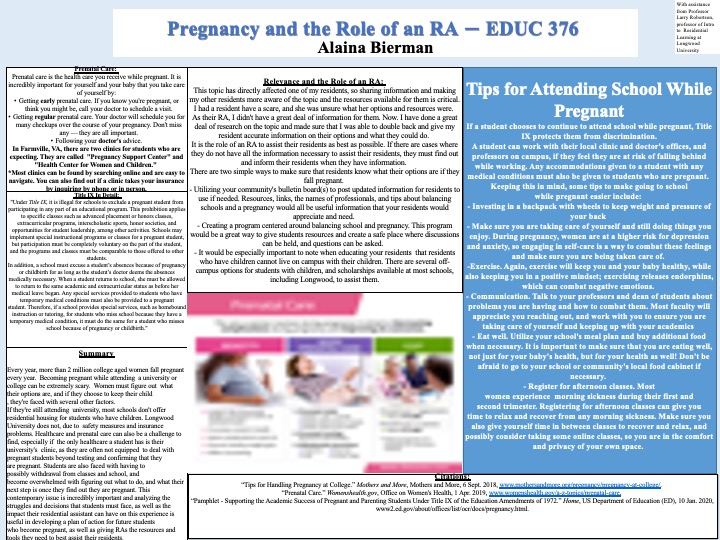
Project Abstract: This project will look at the effects pregnancy can have on a resident, and how a residential assistant can aide and assist their residents through this process. This project will look at the resources Longwood University provides to students who become pregnant while attending school, and the additional help they will need from other sources, particularly their RA. The purpose of this project is to answer this question, as well as provide detailed guidelines and paths an RA could take should a resident disclose to them that they are pregnant or expecting a child. The impact of this project would be to educate and assist students attending Longwood University and Residential Assistants tasked with making sure Longwood residents are safe, healthy, and happy while on campus.

